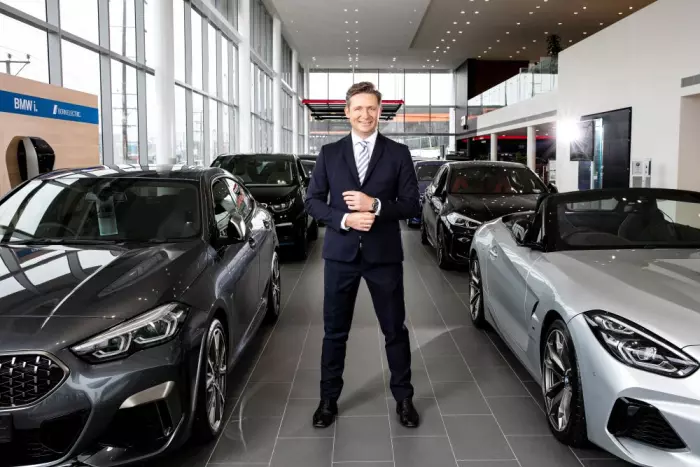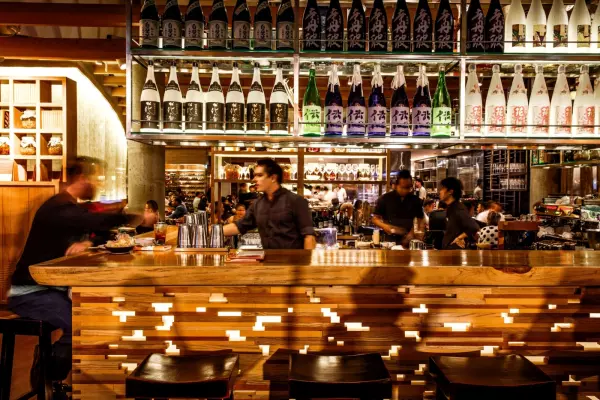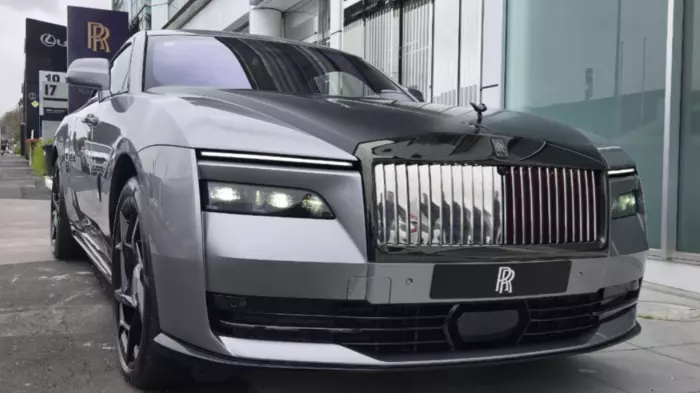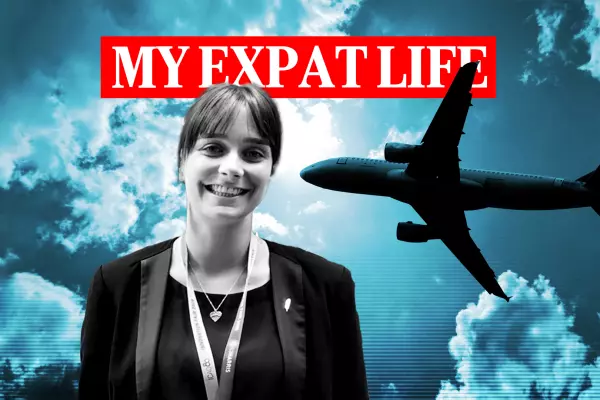The future of cars will be very personal. Maybe even too personal.
This is already entrenched at the top end of the market, according to BMW Group New Zealand managing director Karol Abrasowicz-Madej.
But in future, the massive amount of data that BMW holds on owners will fuel an iPhone-like ecosystem that makes it hard to swap to another brand.
For $200,000-plus vehicles, luxury events and personal relationships with dealership owners already fuel significant sales.
Pandemic years excluded, carmakers like BMW wine and dine potential clients at exclusive locations, creating memorable experiences and deep brand loyalty. Late last year, Mercedes-Benz hosted existing customers at the brand-new Park Hyatt Hotel on the Auckland waterfront to hear former All Black captain Richie McCaw and his wife, hockey Olympian Gemma McCaw, talk about their careers and world views, as well as to look at the latest vehicles.
For BMW, events in early 2019 included a five-course meal by chef Josh Emett at the Lakeside House near Waimauku. At the 10-person event, artist Holly Schröder created art for each participant, guests sipped Krug champagne, and music was courtesy of an octet from the New Zealand Symphony Orchestra.
Abrasowicz-Madej says such social events are particularly soft sell. “We don’t mention even once anything about buying a car.
“Every single person who was there, when they were leaving they were asking, ‘OK, what do you want from me now?’ And we just say we hope you enjoyed it, and hope to see you again.
“And this is a relationship that needs to be maintained. The automotive business is transforming from product-centricity to customer-centricity.”
 Karol Abrasowicz-Madej in front of a Holly Schroder artwork.
Karol Abrasowicz-Madej in front of a Holly Schroder artwork.
The world is on the edge of a massive shift to electric transport, and carmakers are taking cues from big-tech to engender brand loyalty.
“Access to information is the key,” says Abrasowicz-Madej. “How do we use that information? In the servicing of our customer.
“Like in the hospitality business, if we go to a hotel, wherever on the globe, before we arrive, they know who's coming. You may be addressed individually, so that you are being recognised at the bar. The barman in France knows what you drank in New York. That is the future of the automotive business.
“To arrive at that stage, the automotive business needs to move into building an ecosystem around the customer.”
This means that BMW and other carmakers are collecting a massive amount of data on the people driving their vehicles. This will aid model development, but will also help sell you another car. “Our aim is to have every customer 360 degrees in our systems knowing everything.
“What would they like to do? What was the last service and necessity? What are the general preferences? And how, eventually in the future, can we use the data from our car for profiling our customer?”
This doesn’t mean a carmaker will be tracking where you drive, or what you say, but they may notice you go off-road in your Beamer, or that you like to go fast.
“In future, cars may be sold fully equipped with hardware, but this will not be activated at the time of a sale. However, within the car, there will be an option for our customer to activate A or B or C additional option based on needs.
“Let's imagine we will have a customer who is off-road and the car will know that it is operating in off-road conditions. The car may ask, ‘Would you like to buy an off-road package?’ At the press of a button the car will activate all the systems to make it available.”
An option, mentioned by another carmaker, would be to have high-power fog lights that are available as a month-by-month paid subscription, so you’d get them only in winter.
Or a VW Golf buyer might get a package that gives them access to a big Touareg SUV for one month of the year.
Traditional car manufacturers are looking at customer experience, whereas potential cars from Google and Apple have a different agenda, says Abrasowicz-Madej.
“For the Googles of the world, they want the car to capture that additional one to two hours’ air time that the customers are spending in the traffic. For Google, it is important to have that one or two hours of additional time in the front of the screen. Two different businesses.”
Just as Google and Facebook collect screeds of data on you, your car may also know more about you than your partner does. “Through creating an ecosystem between a vehicle and a customer – similar to mobile phone technology – we will be retaining the customers for the future,” Abrasowicz-Madej says.
“We would like to know the most about the customer. But there are limitations on data privacy, so we need to always operate compliantly. Everything we can use which comes from the sales process, or eventually from the car in the future, will be used to improve the quality of service.”
Purchasers might be able to use a BMW app to see their new vehicle built on a production line and then track it around the world as it is shipped to New Zealand. Then they can interact on a social network exclusive to owners of the model they’ve bought.
This all builds an ecosystem, like the one you have on your Apple or Android phone, making it painful to swap to a Lexus, Audi or Mercedes. “Everything would be an ecosystem, and once we reach the level of the ecosystem that the customer will be comfortable with, that depth of data and connectivity will also help to lock customers in,” Abrasowicz-Madej says.
“Then the change to another brand will be not about the changing of a product, but it will be a change of a quality of life.
“This is about creating the stickiness which we are missing, to an extent, with our vehicles. That is this big transformation of the worlds coming together.”














